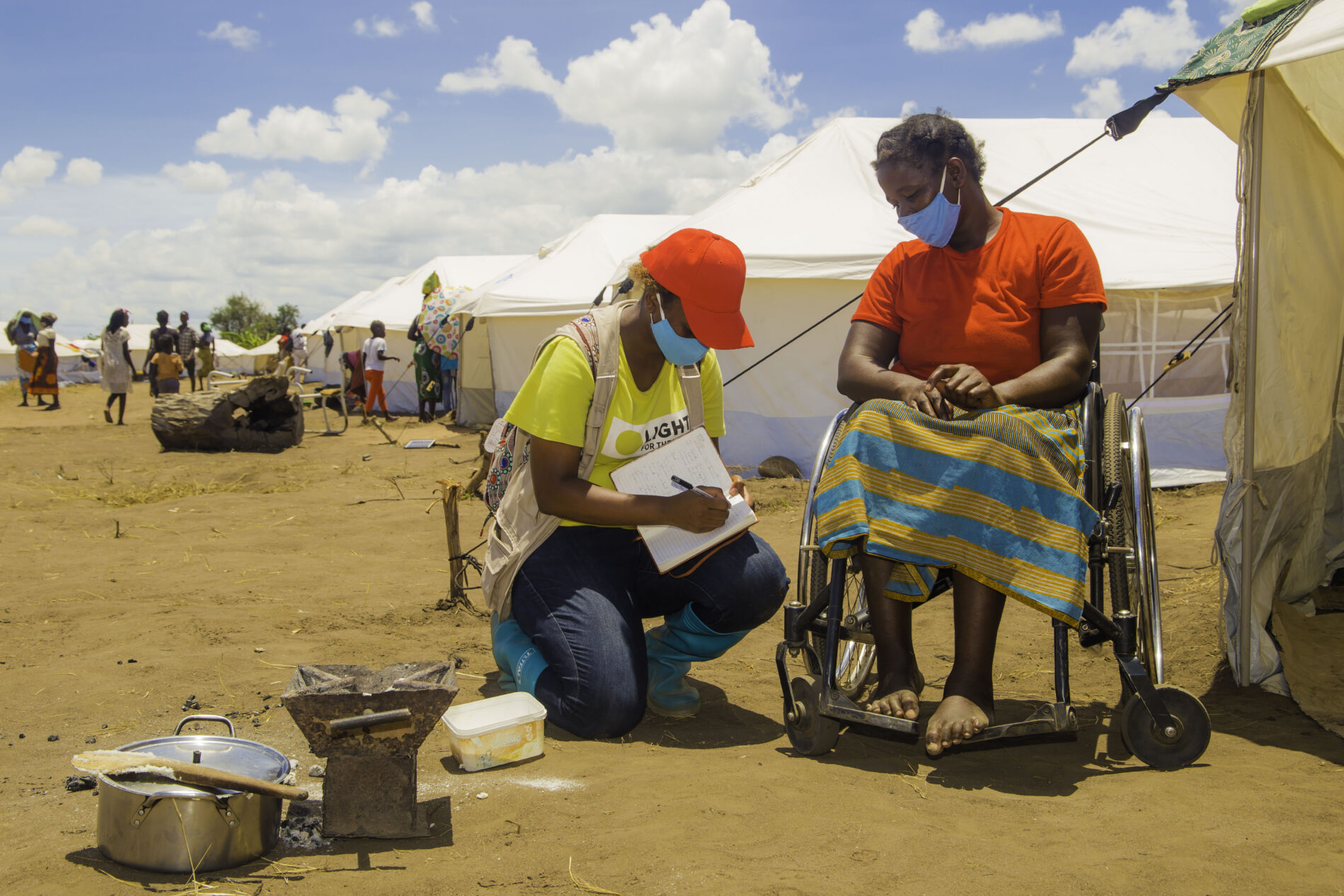6 Innovations Using Data to Make Humanitarian Programming More Inclusive for Older People and People with Disabilities

Humanitarian settings are some of the most challenging contexts for inclusive and responsible data collection. This is down to factors such as low-resource availability, diminished infrastructure, highly diverse communities and potentially vulnerable individuals, and a frequent need for rapid decision making. Despite sector-wide principles and standards, approaches to data responsibility are still inconsistent, and data is often collected without a clear purpose, or not properly used to inform and improve programming.
In 2021, the UN Secretary General called for improved collection, sharing and use of data on disability in humanitarian action, revealing a lack of inclusive data and low participation of people with disabilities. Our 2020 Gap Analysis similarly noted that common qualitative data collection methods can actually create barriers to inclusion. It also found little evidence of consideration for how older age and disability intersect with each other and with other identity characteristics – such as gender, ethnicity and religion – and many cases where older people are absent from important datasets altogether.
Part of the problem is due to a lack of meaningful collaboration with older people or people with disabilities. The Gap Analysis highlighted how data collection methods were rarely co-designed with representative organisations, such as older people’s associations (OPAs) and organisations of persons with disabilities (OPDs).
Prompted by these insights, our Data Driven Inclusion Challenge was launched last year. The aim of the funding call was to support projects that could change and improve the way we collect and use data for disability and older age inclusion in humanitarian action. A key requirement was that the project must involve meaningful collaboration with representative organisations (OPDs and OPAs).
The innovations selected are hugely diverse in both approach and the humanitarian context in which they aim to assist. Next year, additional funding will be provided for the most promising innovations to further develop and pilot them, and we will continue to capture learnings, successes, and challenges, sharing them with the humanitarian community.
As we mark International Day of Persons with Disabilities (3 December), why not explore the work of our grantees supporting more inclusive, data-driven humanitarian action for people affected by crisis:
More meaningful and inclusive humanitarian action
Islamic Relief Palestine
A new community-driven approach to data collection to make humanitarian programming in Palestine more inclusive of people with disabilities and older people, and to increase the number of people that are registered with the national database.
Older refugees and refugees with disabilities as MHPSS co-researchers
AMREF Health Africa
An interactive mental health and psychosocial support (MHPSS) toolkit co-designed with older refugees and refugees with disabilities in Kenya.
Humanitarian disability needs estimation and screening tool
Nossal Institute
A rapid screening tool to identify the access and functioning needs of people with disabilities in Indonesia and the Philippines in the early stages of humanitarian response.
Gender-responsive early action protocol for volcanic eruption disasters for advocacy and rights of older people and people with disabilities
Plan International UK
A gender-responsive protocol which enables older people and people with disabilities in Indonesia to take the lead in developing recommendations for inclusive early action and preparedness.
Measuring the inclusivity of disaster risk reduction and resilience programming
Consilient Research
A tool to assess the participation of people with disabilities and the elderly in community emergency response planning in Somalia. The tool will also verify whether interventions are adequately inclusive.
Data that matters
Light for the World
A mixed methods rapid assessment tool which helps to identify the existing barriers and enablers people with disabilities and older people face in accessing humanitarian assistance in internally displaced people (IDP) camps in Mozambique.
[.slimline-cta-box][.slimline-cta_heading]Explore more[.slimline-cta_heading][.slimline-cta_paragraph]You can explore more tools and research from our Disability and Older Age Inclusion work on our website.
Read more about projects we've funded to support older people and people with disabilities in humanitarian settings in our Innovation Catalogue.[.slimline-cta_paragraph][.slimline-cta-box]
Stay updated
Sign up for our newsletter to receive regular updates on resources, news, and insights like this. Don’t miss out on important information that can help you stay informed and engaged.
Explore Elrha
Learn more about our mission, the organisations we support, and the resources we provide to drive research and innovation in humanitarian response.